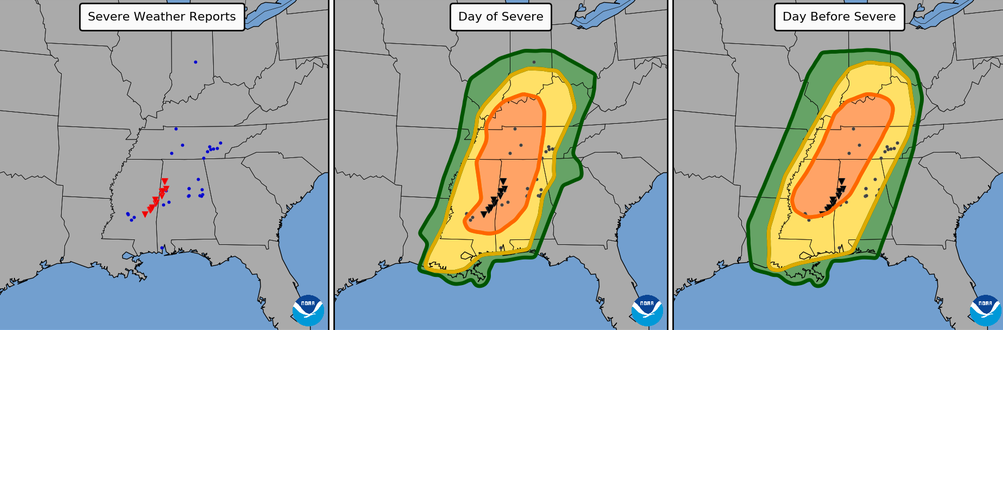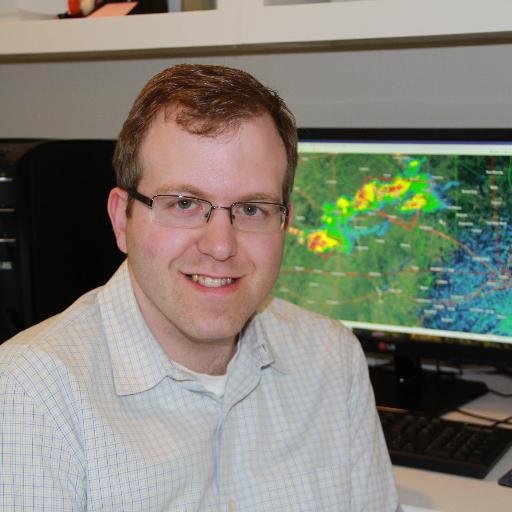
Without Warning: Moving from Twitter Anger to Action

NBC headline proclaiming tornado came "without warning" falls flat
Last night I had the opportunity to talk to Dakota Smith and Tyler Jankoski on their Weather Junkies podcast. It was a fun experience, and the first time I've done anything like that in a long time.
On the podcast, there was a well-timed question I felt I had an odd answer to. I was asked what I thought was the biggest problem involving social media and weather. The hip answer would certainly be "modelologists" or weather enthusiasts posting maps of things that are extremely unlikely, without any useful context. In thinking about how I would answer, I drifted into something like "sometimes we can't get out of our own way."
A bit harsh, but there may be some truth to it. And I'll freely admit to taking part in it too.
But, are we, meteorologists, really our own problem?
A lot of people will probably scoff at that, but hear me out if you will.
Weather Twitter is an interesting place. Whenever there's any indication of us being slighted as a community, there seems to be a chorus of frustration that comes out on Twitter.
On Wednesday night, NBC Nightly News CG'ed their graphic about their tornado story with "Without Warning."
.@TiredTVTerms: "without warning". See 2 week lead CFS forecast of supercell composite parameter and precipitation. pic.twitter.com/8FQ8J001kE
— John Morales (@JohnMoralesNBC6) February 4, 2016
This prompted an outpouring of anger on Twitter by a lot of folks in the weather community, either subtweeting or tweeting directly at NBC Nightly News, complaining about it. And I will say that this frustration is warranted. This was another incredibly well-forecast weather event from many days in advance. There was nothing I saw that was especially odd about the event itself as it unfolded. Folks had what we would likely say in 2016 is excellent or adequate warning.
But the "without warning" meme seems to find itself in the news again and again, in situations where there was plenty of warning. For myself, I don't take this as an affront to our field. My contention is that "without warning" is less an intentional insult to the field of meteorology and more a figure of speech. You don't wake up on a day where there is tornado risk and think that you're going to lose your home. You know it could happen, but I think even the most pessimistic of us wouldn't expect to be hit. So in that sense, yes, it's without warning. Sort of. It doesn't make it right though, and here's why:
Some arguments against "Without Warning" are rather compelling. The one I like most came out of this exchange:
@blueznjazz @mattlanza @ryanhanrahan @islivingston rsrch shows trust is important in picking sources & deciding how to respond to warnings.
— Nate Johnson (@nsj) February 4, 2016
@islivingston @blueznjazz @ryanhanrahan @mattlanza Work done post 2011 showed people had misconceptions about wx that hindered response.
— Nate Johnson (@nsj) February 4, 2016
When the meme is one that continues to erode trust in meteorologists and the science of meteorology in general, that's problematic. When studies back that up and show things like Nate mentioned? That's really problematic.
So what do we do about it? I think we've all tried to raise awareness of the problem and get producers and people in the national media to talk to us first and get our input on things. When I worked in TV, I tried to have really solid relationships with our producers for this very reason. Clearly, that hasn't worked in full, as this keeps happening, we keep reacting, and Weather Twitter's gears grind with frustration.
There were a couple tweets this morning from a couple meteorologists I follow and respect:
The #WithoutWarning controversy occurs every few months, & likely continues. Why? Social Media reminds you everyday that facts don't matter.
— Jayson Prentice (@SeverePlains) February 4, 2016
@SeverePlains Where's the press release from NOAA saying why it's wrong? How about the AMS? Has anyone emailed someone at 30 rock?
— Ryan Hanrahan (@ryanhanrahan) February 4, 2016
This is an understated point I think. Where is AMS? Where is NWA? Heck, where's NOAA/NWS? They issue the warnings, so they're the ones who should be first to defend the strong performance of their employees when it's attacked, directly, by accident, or otherwise. It's not propaganda, it's honesty. The NWS has an employee union. But as meteorologists in general, we only have the National Weather Association and the American Meteorological Society. You don't want to nitpick and police everyone and everything and come off as a bunch of cry babies, but instances like #withoutwarninggate warrant a response from the community. The disjointed rah-rah of Twitter is nice for us, but it's not practical in getting the voices heard outside of our own echo chamber and getting change accomplished.
There's been a lot of talk about change in communication and weather and perception. But have there been enough results? Most would probably say "Not yet, but we're getting better."
Perhaps this is an opportunity. Maybe it's time we work with our professional organizations to get a committee or group of people together to respond to faults like "without warning" quickly, directly, tactfully, and with some effect. With weather often a top story in the national media, it's easy to watch for instances like this and reach out to try and correct them. Rather than this disjointed response of frustration on Twitter, something more organized and polished will likely have more impact and be more beneficial to us in the long run. Perhaps a committee in AMS or NWA can be proactive and work to educate news producers on false perceptions that may still exist about meteorology? You can't win unless you have a ground game, and right now it feels like we lack an organized, mobile ground game to stand up for ourselves in situations like this. Maybe it's time for one.
